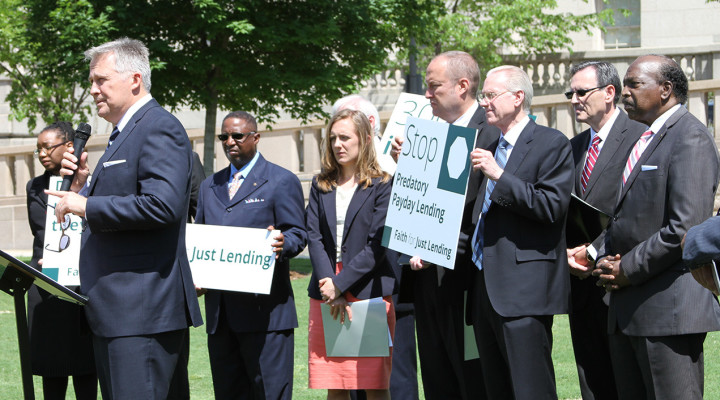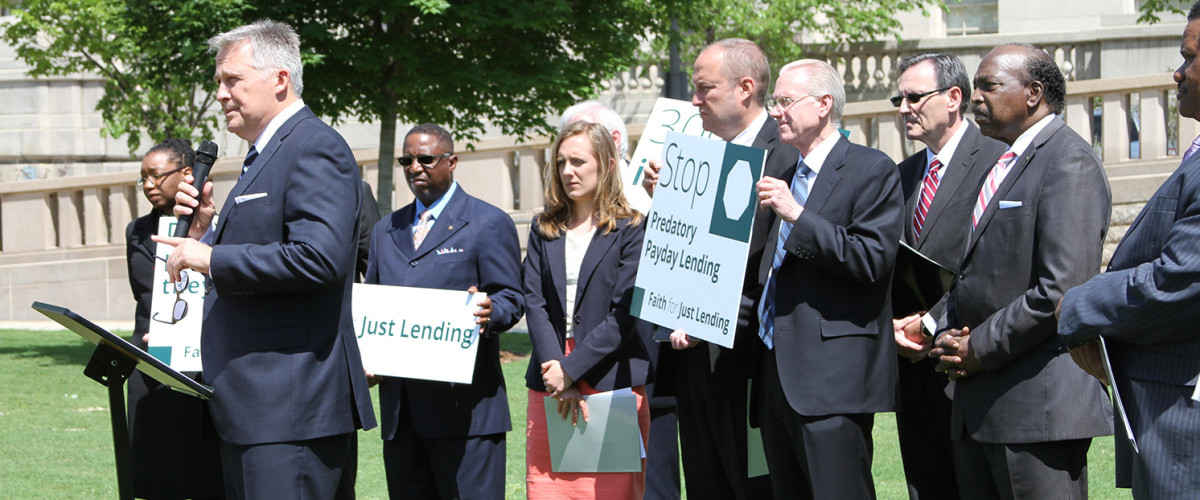Religious opponents of payday lending got a boost Wednesday from the release of a new research confirming widespread Christian condemnation of the practice.
Faith for Just Lending, a diverse coalition of faith groups, released a report titled The Collateral Consequences of Payday Loan Debt. The report shares the experiences of churches and borrowers in dealing with payday and car-title loans.
FJL also drew attention to the Wednesday release of a new LifeWay Research survey which polled 1,000 Christians on their attitudes toward payday lending issues.
“Self-identified Christians in 30 states — from Alabama to Wyoming — say it’s a sin to lend money to someone who can’t afford to pay it back,” LifeWay said in presenting its survey.
Likewise, Faith for Justice in Lending reported that ministers and faith-based social service providers overwhelmingly describe payday loans as harmful instead of helpful.
“These findings confirm that the attitudes and experiences of Cooperative Baptist church members and pastors are shared by Christians across the country,” Stephen Reeves, CBF’s associate coordinator for partnerships and advocacy, said in a FJL news release.
Government needs to act given that so many people of faith consider the payday lending system to be harmful, Reeves said.
“It is time for lawmakers and regulators to step up, listen to the people so often drowned out by industry money and political influence, and enact fair and responsible boundaries for these predatory products,” he said.
The Rev. Sèkinah Hamlin, director of the Ecumenical Poverty Initiative in Washington, said in the release that faith-based opposition to payday lending will continue.
“It makes no sense and is really a sin for children and families to be caught in a destructive cycle of debt simply because they are trying to make ends meet,” Hamlin said.
Another Baptist leader said the vulnerable must be protected.
“To enrich oneself by increasing the burden on the poor is shameful,” Barrett Duke, vice president for public policy with the Southern Baptist Convention’s Ethics & Religious Liberty Commission, said in the news release.
“Those involved in providing financial services to poor and vulnerable peope have a moral responsibility to ensure that they are really helping them and not merely profiting from them,” Duke said.
FJL steering committee members include the Center for Public Justice, the Cooperative Baptist Fellowship, the Ecumenical Poverty Initiative, the Ethics & Religious Liberty Commission, the National Association of Evangelicals, the National Baptist Convention, USA, the National Latino Evangelical Association, the PICO National Network and the U.S. Conference of Catholic Bishops.



